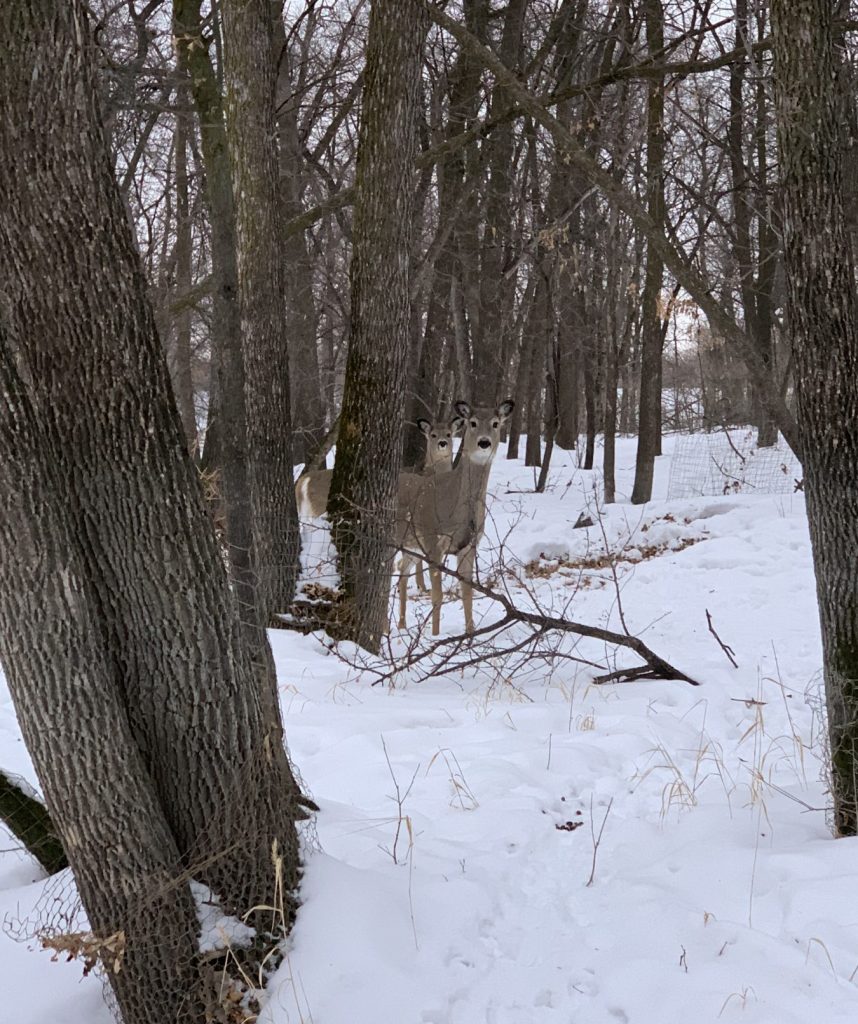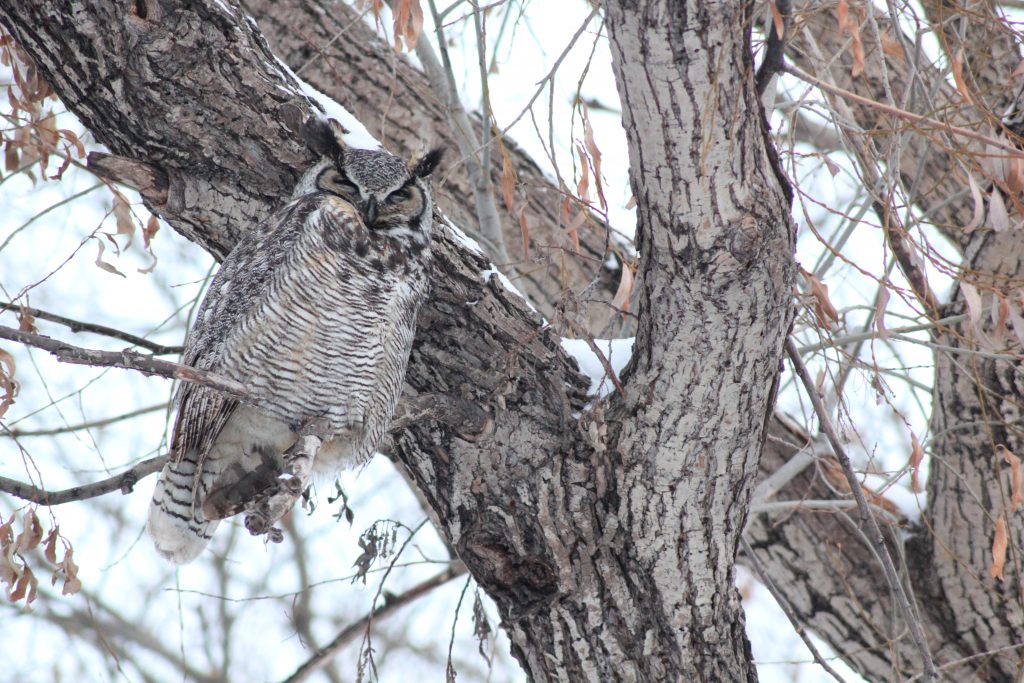
Some of my favourite moments growing up involved encounters with wildlife. I poured over wildlife books, watched vigilantly from the backseat on long drives, and learned to walk or sit quietly in forest or lakeside. Wildlife rewards the observant with rare sightings.
Even today, I find no greater delight than coming home to the breakfast table after my morning run with a story about an encounter with a wild animal (lately it’s been ruffed grouse).
Maybe this is why I was so captivated by Annie Dillard’s modern classic Pilgrim at Tinker Creek. In it she writes about her many adventures in the valley she calls home, discovering bugs, birds, and muskrats, a lot about muskrats.
One of the joys of seeing a wild animal is the exclusivity of the event (unless you’re parked with throngs of tourists in the Rockies trying to get a glimpse of, say, a mountain goat). Animals prefer not to be seen, and rarely are by most people. As Dillard reflects:
“The great hurrah about wild animals is that they exist, and the greater hurrah is the actual moment of seeing them. Because they have a nice dignity, and prefer to have nothing to do with me, not even as the simple objects of my vision. They show me by their very wariness what a prize it is simple to open my eyes and behold.”
I realized this prize last spring when, running in the Sandilands on familiar trails, I happened across two white wolves crossing the trail in front of me. Suddenly we were both caught, and held each others’ gaze, all equally surprised at the chance crossing. The wolves, looking much like curious dogs, ears upright, watched me as I continued respectfully on my way. For months we’d seen tracks, heard stories of wolf dens in the area, but these secretive animals had always eluded me.
Dillard’s muskrat-stalking stories are beautifully human, describing the trouble of trying remain still when a muskrat appears, freshly-lit cigarette creeping towards her fingers, while also sacred and attentive.
“Now we rejoice. The news, after all, is not that muskrats are wary, but that they can be seen.”
These days, when an interesting bird decides to grace our backyard with its presence, all five pairs of eyes in our house become glued to the window, straining for a glimpse. A few months ago a majestic great-horned owl swooped into our tree in the middle of the day. We hurried outside to see how close we’d be allowed to approach. The owl mostly pretended to ignore us while we crept right underneath the tree.

When our attention becomes fixed so firmly on something like a sleepy owl, we can completely forget ourselves. Dillard beautifully reflects on the phenomenon of self-forgetfulness brought on by creature encounters. This of, again, a muskrat who never found out she was there:
“I never knew I was there either…
“I have often noticed that even a few minutes of this self-forgetfulness is tremendously invigorating. I wonder if we do not waste most of our energy just by spending every waking minute saying hello to ourselves.”
Maybe this is the magic of wildlife encounters, this self-forgetfulness, a realization of some others lifeforms who call this planet home, yet remain mostly unseen most of the time. A single moment can instantly expand our understanding of a world that one moment earlier seemed so ordinary and unremarkable.
Next I think I’ll have to start searching the creek banks for muskrats…